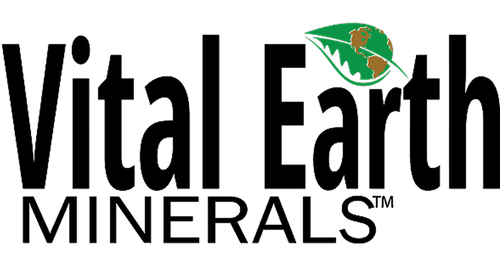
Foods To Avoid During A Detox
Detoxing is a popular way to refresh your body. People often do it after eating unhealthy food, being around toxins, or just to improve their overall health. While most are concerned with what they should put in their diets while cleansing, what they take out is also important. Selecting the appropriate foods is only part of the challenge—eliminating the bad ones is essential to a successful cleanse.
Start your cleanse with a reliable Vital Earth Minerals Digestive Detox!

Why Detoxing Matters
The human body has advanced systems – the liver, kidneys, lungs, and skin, to detoxify and expel toxins. Yet, a contemporary way of life with processed food, toxins, stress, and chemicals overwhelms these systems. That's when detoxing plan begins: removing detrimental chemicals and consuming pure foods allows you to nurture your body's inherent power to cure, heal, and perform its best.
What Happens When You Don't Expel the Right Foods?
Detoxes often fail not because individuals fail to eat sufficient "good" foods but because they keep eating foods that disrupt the body's cleansing mechanisms. These foods clog the digestion, exhaust the liver, exacerbate irritation, and weaken energy levels. Knowing what not to eat is as crucial as knowing what to eat.

10 Foods to Avoid During a Detox
When you detox at home, your body works hard to clean itself. This process needs energy and requires your internal organs to function well. Consuming certain foods can work against these efforts by introducing toxins, disrupting digestion, and causing irritation. Here's a breakdown of 10 common food types you should steer clear of to ensure your detox is truly effective.
1. Processed Foods
Processed foods such as packaged snacks, ready-to-eat meals, and fast food tend to have unhealthy fats, sugars, and artificial additives. These tend to cause discomfort, upset gut health, and overload the liver, the body's main detox organ. While on a detox, reducing the consumption of these foods is important to help your body's natural cleansing mechanisms.
2. Sugary Drinks
Sodas, sweetened fruit juices, and energy drinks contain added sugars and empty calories. The intake of such drinks can cause blood sugar increases and dips, leading to cravings and difficulty sustaining energy levels. Instead, choose water, herbal teas, or infused water with fresh fruits to remain hydrated and avoid added sugars.
3. Alcohol
Alcohol is a poison that puts extra stress on the liver and may interrupt the process of detoxification. It also contributes to dehydration and sleep disturbance. In a detox, it's best to remove alcohol to give your body the chance to heal and clean up.
4. Caffeine
While a morning coffee may be a habit for some, caffeine is a stimulant that can boost anxiety, inhibit sleep, and cause dehydration. Limiting caffeine intake during a detox will help level out mood and support improved sleep patterns. If you cannot eliminate caffeine, switch to decaffeinated drinks or herbal teas.
5. Dairy Products
Dairy products like milk, cheese, and butter can cause inflammation and digestive issues for some people. A detox can help eliminate dairy, reduce inflammation, and give your digestive system a rest. You can use plant-based alternatives like almond or oat milk instead.
6. Refined Carbohydrates
Foods such as milk bread, pastries, and pasta made from refined grains can cause rapid spikes in blood sugar levels. These fluctuations can lead to energy crashes and increased cravings. Choosing whole grains like quinoa, brown rice, and oats can provide sustained energy and support the detox process.
7. Fried and Fatty Foods
Processed snacks and some types of meat often contain fried foods and unhealthy fats. These can cause inflammation and overload your digestive system. Grilled, steamed, or baked food can be more body-friendly during detox.
8. Artificial Additives and Preservatives
Processed foods often include artificial additives, preservatives, and flavor enhancers such as monosodium glutamate (MSG). These are difficult for the body to eliminate and can interfere with detoxification. Careful reading of food labels and selecting whole, unprocessed foods can prevent these additives.
9. Non-Organic Produce
Conventionally grown fruits and vegetables can have pesticide residue. This means your body has to work harder to remove these toxins. To reduce exposure to these chemicals, use organic fruits and vegetables, or wash and peel them thoroughly whenever you can.
10. High-Sodium Foods
Too much sodium may cause water retention and blood pressure elevation. Processed meat, canned soup, and chips are typical high-sodium foods. Limiting intake of such food can aid in maintaining fluid balance at optimal levels and aid the detox process.
Conclusion
Taking on a detox journey is not merely about adding healthy foods; excluding some items that can block your body's natural cleansing process is just as crucial. By avoiding processed foods, sugary drinks, alcohol, caffeine, dairy, refined carbohydrates, fried foods, fatty foods, artificial preservatives, non-organic vegetables and fruits, and high-sodium foods, you can assist your body's process of expelling toxins and renewing itself.
Remember that a successful detox is achieved by making conscious decisions supporting your health objectives.
Frequently Asked Questions
Can I drink caffeine during a detox?
Although it is recommended to decrease caffeine consumption while detoxing to allow for improved sleep and decreased anxiety, moderate intake might be okay for some people. Talking to a medical professional about your needs is always best.
Can I use dairy alternatives while detoxing?
Yes, when detoxing, plant-based milks such as almond, coconut, and oat milk can be great alternatives to dairy products.
How long should I exclude these foods from my diet during a detox?
The detox time may differ according to personal aims and medical status. Following your body's signals and visiting a healthcare practitioner to decide when to exclude some food items is necessary.
Disclaimer
Vital Earth products are not intended to diagnose, treat, cure, or prevent any disease. If you have health concerns or medical conditions, please consult a healthcare professional before use.
